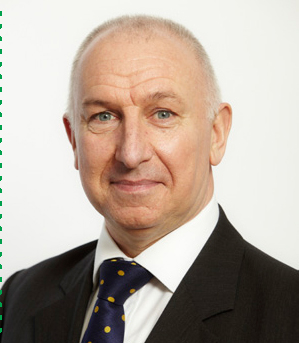
‘Be more than a paramedic. Be a London paramedic. London. No ordinary challenge. Become a paramedic in the world's busiest paramedic service and you'll receive diagnostic training and make clinical decisions.’
And so the advertisement goes on on the service's website.
The shortage of skilled British paramedics has encouraged an aggressive bid to tempt Australian paramedics to make the move and is part of a number of initiatives the London Ambulance Service NHS Trust (LAS) is using to help fill posts that are vacant. LAS is seeking to recruit registered paramedics from overseas for the first time in a bid to fill their empty posts. Australia and New Zealand are being targeted as the skills and training are said to closely match those in the UK. In order for LAS to do this, they had to seek approval from the UK Border Agency so as to offer sponsorship for 100 work visas a year for those paramedics who are non-European.
There are currently 1 810 paramedics in LAS, with another 150 who are in training. Year-on-year increases in demand, as well as a need for more registered healthcare professionals to respond to patients, have led to a need for a greater number of paramedics.
Paramedics who are recruited from overseas will need to undergo a conversion course prior to being able to treat patients.
Retraining those from overseas is much quicker, and usually requires only a short four-week conversion course. The Health and Care Professions Council (HCPC) and each profession at the HCPC has its own detailed criteria for assessment. These are outlined in the profession-specific elements of the standards of proficiency. The applicant must satisfy the registration assessor when making their application as to how they meet the benchmark standards of proficiency. This can be established through a combination of education, training and experience achieved in practise of the profession for which they are seeking registration.
The HCPC makes it a requirement to communicate effectively in English as this is key to working effectively as a paramedic in the UK. As such, the HCPC can ask applicants for information about their ability to use English. This is a requirement for international applicants (such as those from Australia and New Zealand) unless the person is a national of a relevant European State other than the UK.
The recruitment campaign has not escaped controversy in Australia. In Victoria, for example, the Herald Sun newspaper suggests that London is trying to poach Victorian paramedics to fill the London Ambulance Service's skills shortage (Van den Berg, 2014). This it is felt may prompt fears that the two-year-old ongoing industrial relations dispute (a stalemate) could drive skilled workers overseas. One fear is that there will be many Victorian paramedics who would be prepared to go and work in London as a result of a lack of recognition and poor pay rates, along with the prolonged industrial dispute with the State Government.
Ambulance services (and patient care therefore) in Australia may suffer as a result of the LAS initiative as they may not be able to afford to lose experienced paramedics. Matthew Dixon reports in The Courier that a shortage of Mobile Intensive Care Ambulance paramedics in one area has meant there were three unfilled shifts on a Saturday night (Dixon, 2014).
“Ambulance services (and patient care therefore) in Australia may suffer as a result of the LAS initiative”
There are therefore a number of important ethical issues that need to be given careful consideration before heading to the Antipodeans in order to recruit. The international movement of health personnel has serious consequences for the delivery of health services (Health Services Union, 2007). There are humanitarian and ethical concerns associated with the migration of healthcare workers.
Why is the London Ambulance Service short of paramedics? Is it because it has failed to succession plan effectively? Is the service working as well as it could with universities, sponsoring student paramedics and encouraging ex-military personnel to think about a career in the ambulance service? Is there a shortage of paramedics in London due to the working conditions and remuneration?
The UK national shortage of paramedics is impacting on all Trusts and has been for some time. Health Education England, local training and education boards, and the Association of Ambulance Chief Executives need to work in a more effective manner with a wide range of stakeholders (and this will include trade unions and professional bodies) providing strategic direction, particularly when it comes to ambulance work force development activities.
There is a global shortage of healthcare workers; robbing Peter to pay Paul is not the answer to this perpetual problem. While one man's meat may well be another man's poison, looking overseas to countries such as Australia and New Zealand should not have to happen if the service planned effectively and also provided conditions of service where paramedics would not want to leave the profession. It should also be remembered that the grass is not necessarily greener on the other side of the fence.

